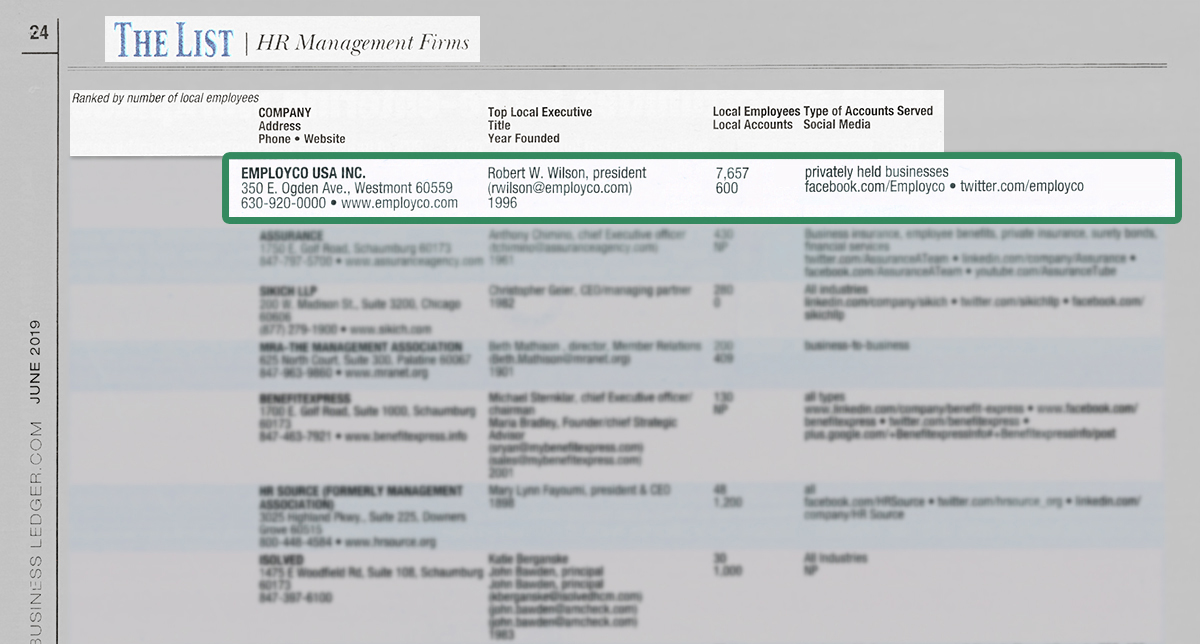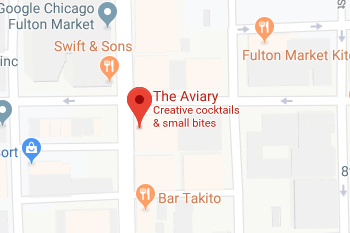Rob Wilson, President of Employco USA, was recently quoted in an article for the Veterans News Report’s online journal VNR:
 “As machines become cheaper to build and artificial intelligence technology becomes more comprehensive and affordable, many industries are going to become robot-centric,” says Rob Wilson, expert in the field. “Just look at the automotive industry: Starting in the 1980s, companies were spending billions of dollars to create robots to perform basic tasks in their automobile factories. Now, 43 percent of the world’s robots are used by the automotive industry. We should expect to see a similar trend in manufacturing as well, although the good news is that robots create jobs in some fields even as they take them away in others.”
“As machines become cheaper to build and artificial intelligence technology becomes more comprehensive and affordable, many industries are going to become robot-centric,” says Rob Wilson, expert in the field. “Just look at the automotive industry: Starting in the 1980s, companies were spending billions of dollars to create robots to perform basic tasks in their automobile factories. Now, 43 percent of the world’s robots are used by the automotive industry. We should expect to see a similar trend in manufacturing as well, although the good news is that robots create jobs in some fields even as they take them away in others.”
Wilson cautions that battles over minimum wage could increase the application of artificial intelligence in some industries, especially as it relates to entry-level, unskilled work.
“Findings show that fast-food workers could be at serious risk of losing their jobs to robots in the next several years. One study found that each new robot added per 1,000 workers causes wages to drop in the surrounding area by around 0.25 and 0.5 percent,” says Wilson. “We can clearly see that in specific industries, the impact of automation can not only impact job numbers, but also a worker’s wages.”
Follow the link to read more:

For more on this topic, please contact Rob Wilson at rwilson@thewilsoncompanies.com.

 “As machines become cheaper to build and artificial intelligence technology becomes more comprehensive and affordable, many industries are going to become robot-centric,” says Rob Wilson, expert in the field. “Just look at the automotive industry: Starting in the 1980s, companies were spending billions of dollars to create robots to perform basic tasks in their automobile factories. Now, 43 percent of the world’s robots are used by the automotive industry. We should expect to see a similar trend in manufacturing as well, although the good news is that robots create jobs in some fields even as they take them away in others.”
“As machines become cheaper to build and artificial intelligence technology becomes more comprehensive and affordable, many industries are going to become robot-centric,” says Rob Wilson, expert in the field. “Just look at the automotive industry: Starting in the 1980s, companies were spending billions of dollars to create robots to perform basic tasks in their automobile factories. Now, 43 percent of the world’s robots are used by the automotive industry. We should expect to see a similar trend in manufacturing as well, although the good news is that robots create jobs in some fields even as they take them away in others.”
 As the country continues to process the news that Eric Trump was spit on at The Aviary in Chicago, the upscale cocktail bar has released a statement regarding the incident. The statement reveals that the employee is on leave, but says they will not comment further about any internal H.R. matters at this time.
As the country continues to process the news that Eric Trump was spit on at The Aviary in Chicago, the upscale cocktail bar has released a statement regarding the incident. The statement reveals that the employee is on leave, but says they will not comment further about any internal H.R. matters at this time. A new study
A new study “Artificial intelligence is driven by algorithms — sets of rules based in part on historical data that computers use to guide decisions. For example, if history shows that employees possessing specific traits have proven successful in a given job role, AI algorithms rank highly applicants with those same attributes.
“Artificial intelligence is driven by algorithms — sets of rules based in part on historical data that computers use to guide decisions. For example, if history shows that employees possessing specific traits have proven successful in a given job role, AI algorithms rank highly applicants with those same attributes.
 On the heels of a
On the heels of a  A Pew study recently revealed that the number of teens with summer jobs has been on a steady decline for the last 2 decades. While almost half of American teenagers used to spend their summers scooping ice cream, slinging burgers, or working at the mall, now only around one-third of teens will spend their summer months employed.
A Pew study recently revealed that the number of teens with summer jobs has been on a steady decline for the last 2 decades. While almost half of American teenagers used to spend their summers scooping ice cream, slinging burgers, or working at the mall, now only around one-third of teens will spend their summer months employed. Illinois lawmakers made a historic decision when they voted to legalize recreational marijuana use last Friday. The House of Representatives voted 66-47 to allow possession and sales beginning Jan. 1, 2020. But how will this decision impact employers and the workplace?
Illinois lawmakers made a historic decision when they voted to legalize recreational marijuana use last Friday. The House of Representatives voted 66-47 to allow possession and sales beginning Jan. 1, 2020. But how will this decision impact employers and the workplace? Statistics show that 95 percent of managers are dissatisfied with their company’s performance review process, and 42 percent of employees agree that performance reviews are ineffective. So how can companies better review and maintain their staff’s performance?
Statistics show that 95 percent of managers are dissatisfied with their company’s performance review process, and 42 percent of employees agree that performance reviews are ineffective. So how can companies better review and maintain their staff’s performance?